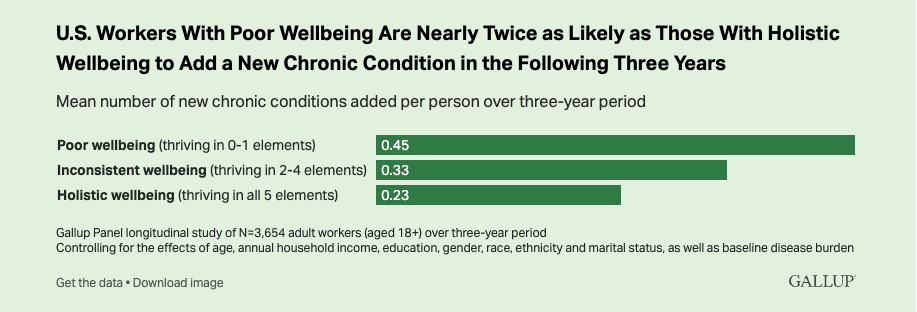
STORY HIGHLIGHTS
- Lower wellbeing linked to 159 extra new conditions per 1,000 people
- Analysis tracks 3,654 working adults over three-year period
- $101.5 billion in new annual healthcare costs linked to extra conditions
WASHINGTON, D.C. — U.S. adult workers who have poor wellbeing across most or all of the five essential elements of wellbeing are about twice as likely to report a major new chronic condition over a 36-month period of successive surveys than are their counterparts who have high wellbeing in no more than one element. Overall:
- Those workers with poor wellbeing (defined as having high wellbeing in one or none of the five elements) developed 450 new chronic conditions per 1,000 persons three years after being initially interviewed.
- Those workers with inconsistent wellbeing (i.e., high wellbeing in two to four of the elements) added 330 new chronic conditions per 1,000 persons over the three-year period.
- Those workers with holistic wellbeing (i.e., high wellbeing in all five elements) added 230 new chronic conditions per 1,000 persons over three years.
- As such, out of every 1,000 full-time working adults with either poor or […]










